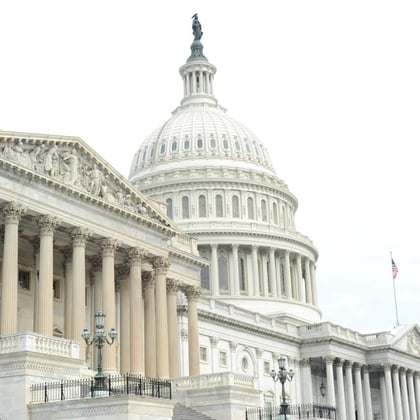What You Need to Know
- The bill, introduced by Senate Finance Committee Chairman Ron Wyden, phases out the pass-through deduction for households earning more than $400,000.
- The plan expands eligibility for middle-income business owners.
- Sixty-one percent of the monetary benefit of the pass-through deduction goes to the top 1% of households, Wyden says.
Senate Finance Committee Chairman Ron Wyden, D-Ore., introduced legislation Tuesday to overhaul the pass-through deduction to ensure small businesses benefit as opposed to the wealthy, including a phase-out for households earning more than $400,000.
The Small Business Tax Fairness Act, Wyden said Tuesday on a call with reporters, would “expand middle-income business owners’ access to the pass-through deduction and remove complex calculations and limitations, while ensuring that the deduction goes to true small-business owners — not millionaires.”
With the 20% pass-through deduction created in the 2017 tax bill, “sixty-one percent of the monetary benefit of the pass-through deduction goes to the top 1% of households. The Small Business Tax Fairness Act would ensure the pass through deduction helps Main Street small business owners, not wealthy real estate investors,” Wyden said.
Most small businesses are organized as pass-throughs, he noted, but many pass-throughs are not small businesses.
Pass-through businesses account for 58% of all businesses with more than $50 million in receipts, a summary of the bill states. “While small business owners with incomes under $200,000 are 80% of taxpayers claiming the deduction in number, 52.4% of the federal government’s expenditure for the deduction pads the pockets of millionaires and billionaires,” the summary says.
Wyden explained that The Small Business Tax Fairness Act:
- Phases out the deduction for households earning more than $400,000 in line with President Joe Biden’s tax plan;
- Expands eligibility for middle-income business owners, such as services, by removing some restrictions on which industries qualify and which don’t; and
- Simplifies the calculation to determine the deduction.
According to the Joint Committee on Taxation, Wyden explained, “the pass-through deduction for those making more than $500,000 per year is going to cost $36.9 billion in 2024. So our proposal eliminates the deduction for those making $500,000 per year for four years, but that comes to about $147 billion.”









 July 20, 2021 at 12:43 PM
July 20, 2021 at 12:43 PM











